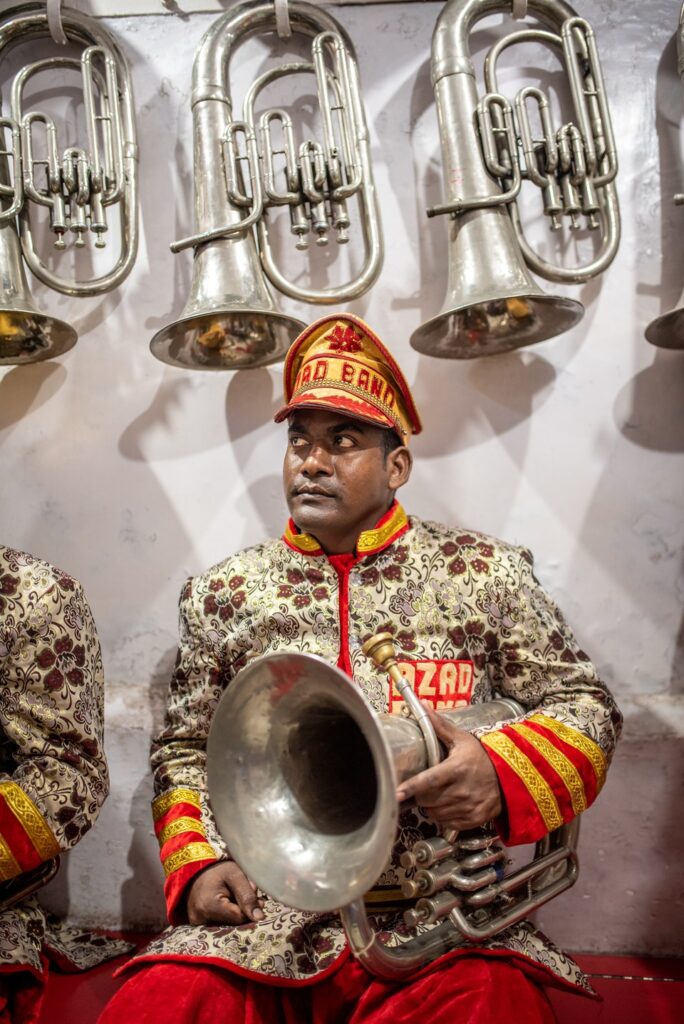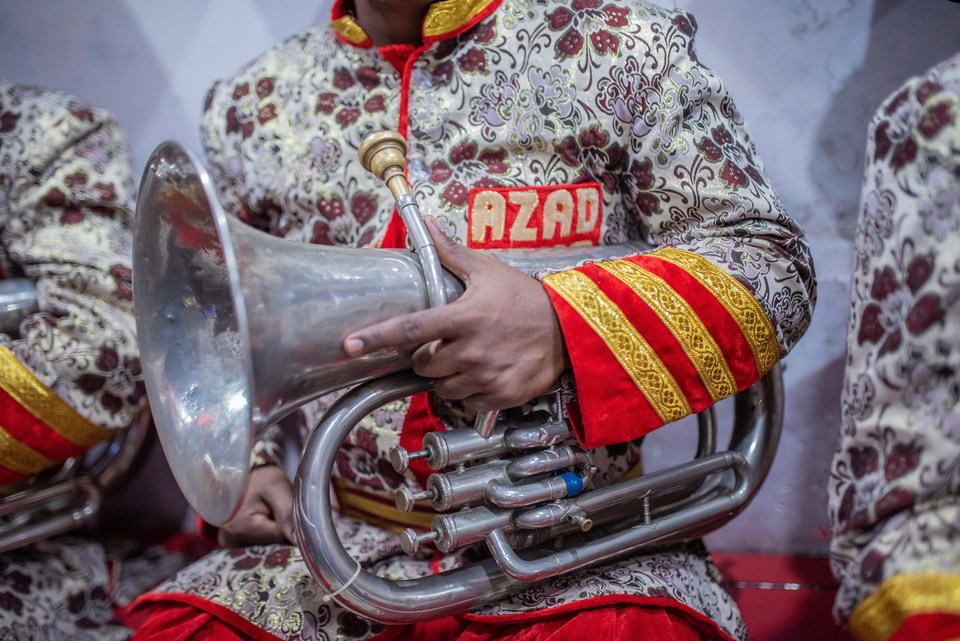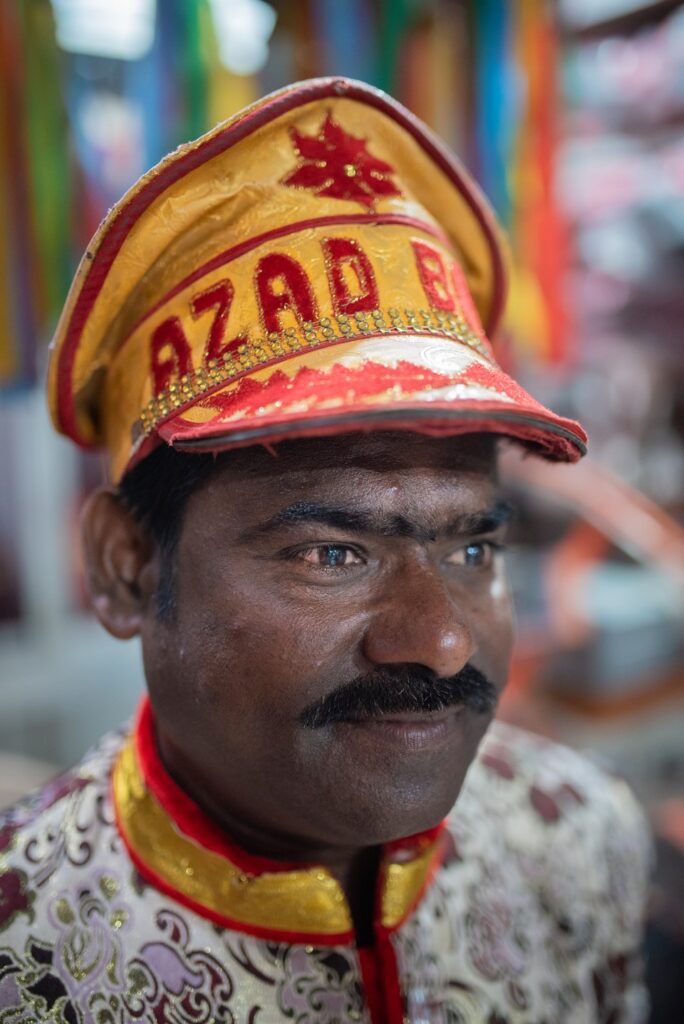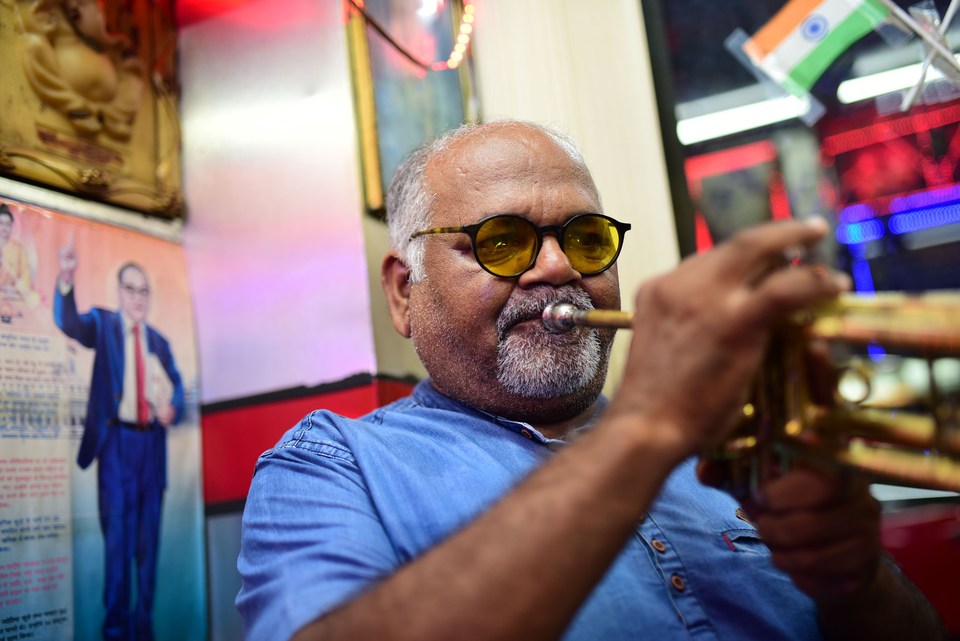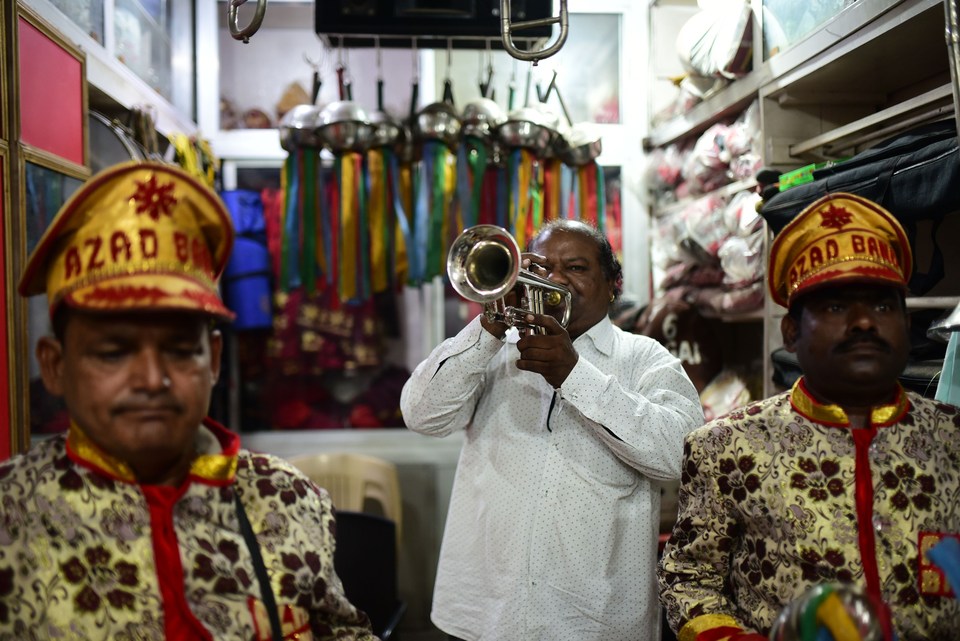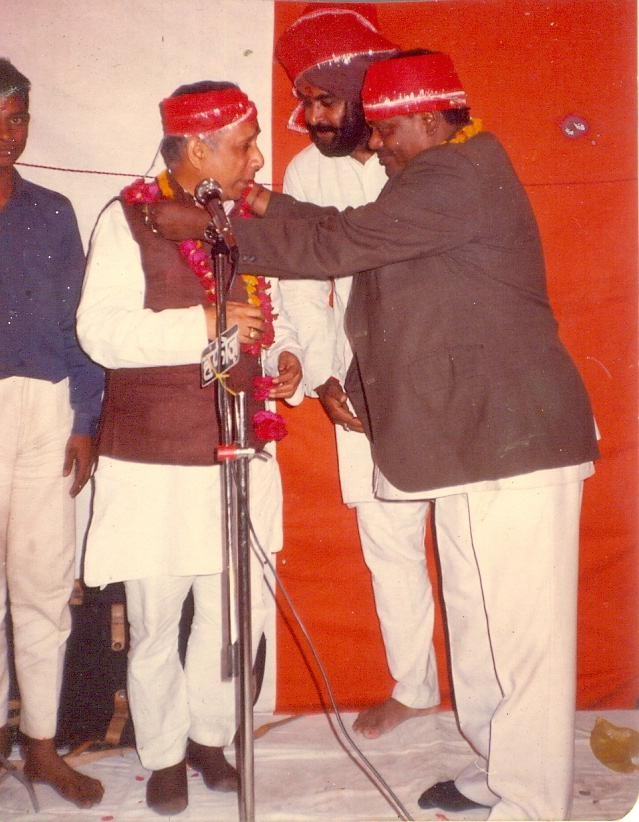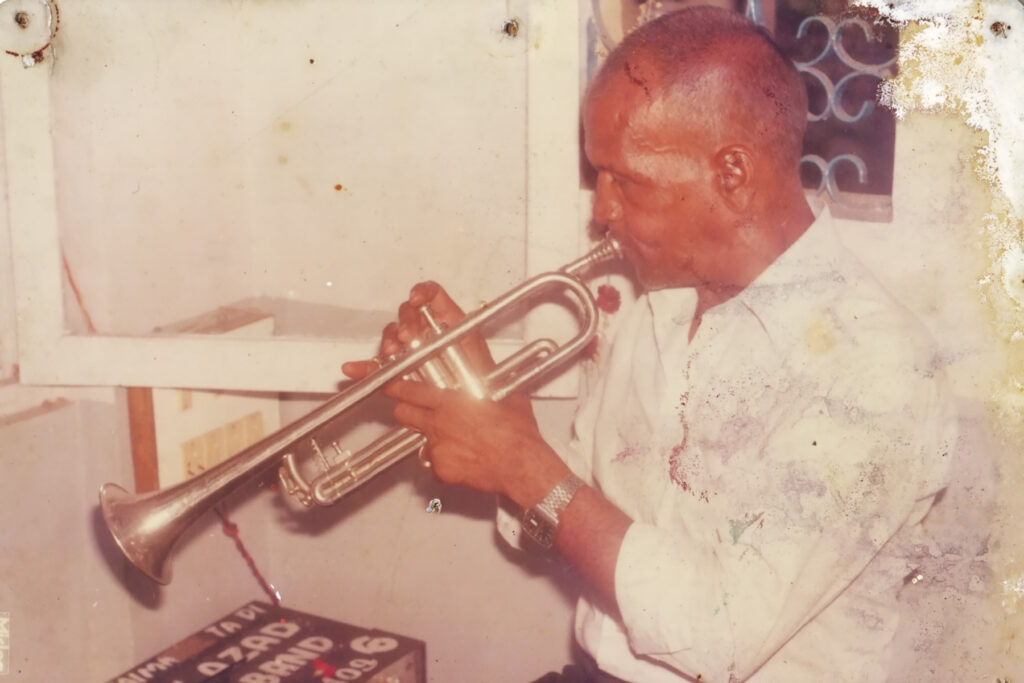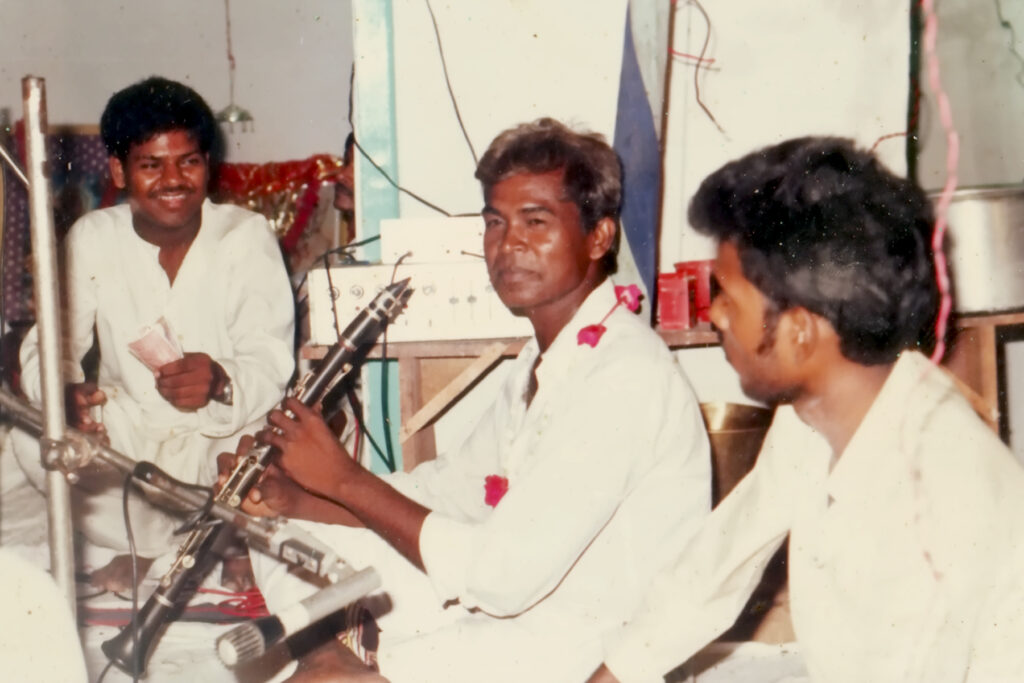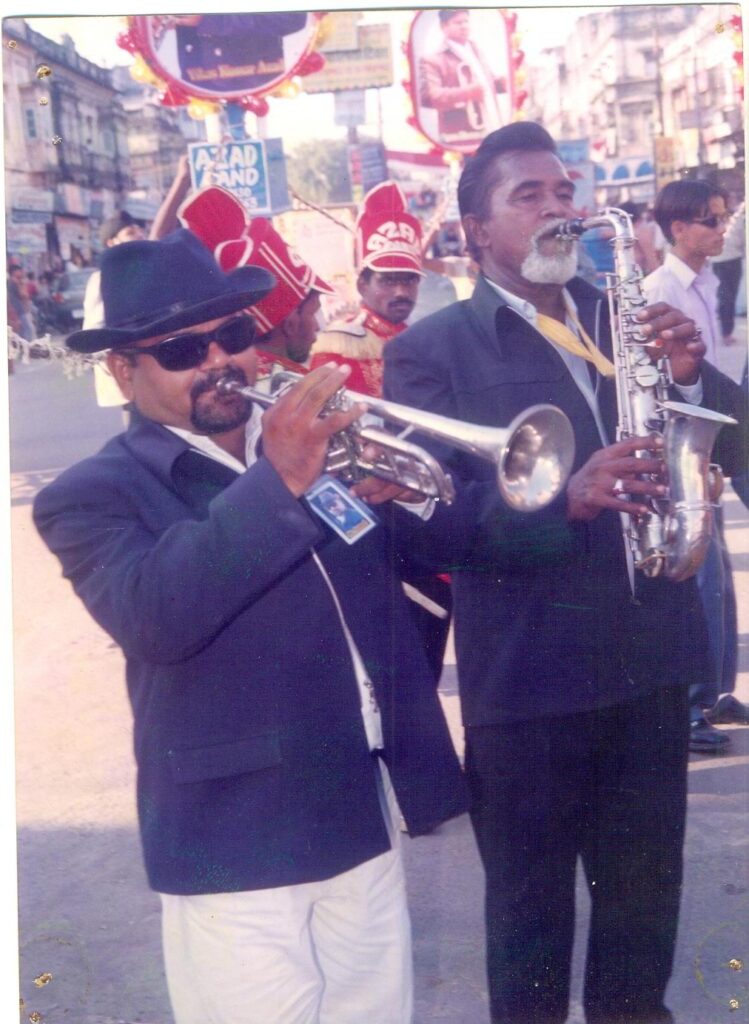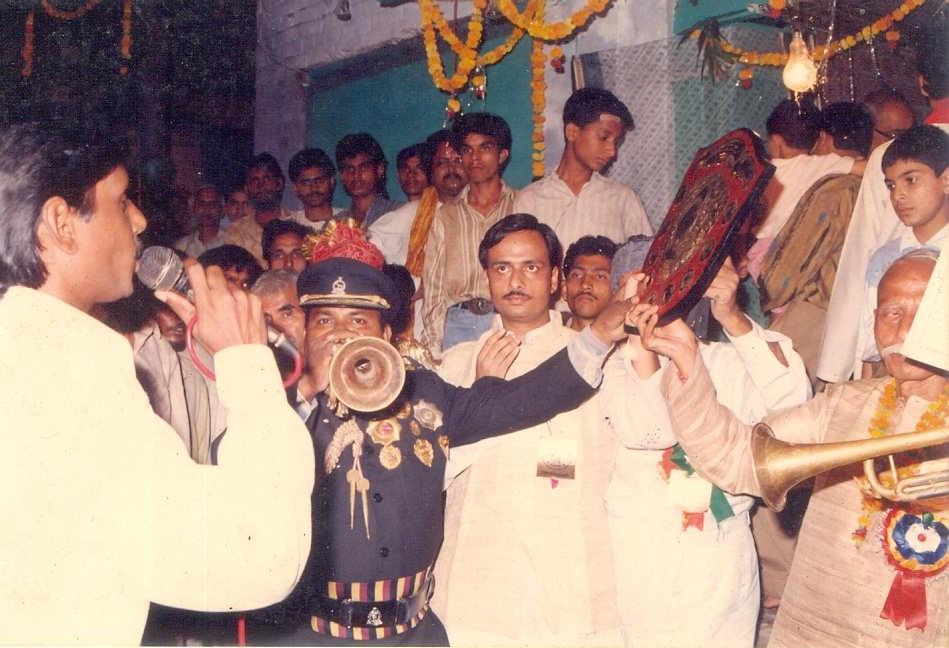A few years before 1920, a circus ship sank, giving a man the freedom to pursue his dream. Babban Master was a trumpeter in the Kamala Circus’ orchestra before he made up his mind to leave and set up his own shop. Times were tough and money was running low, so a friend gave his shop to Babban so he could set up his own business. Therefore, in 1920, the International Band got its name and was set up at Latouche Road, Lucknow.
Babban and his four younger siblings had a very keen interest in music from the get-go. They belonged to the Dhanuk samaj, and also to a lineage of wrestlers. Babban Master developed an early interest in Western music and ballroom culture music, which he was trained in and later performed. Furthermore, he came to Lucknow and enrolled in Bhatkhande to learn Indian Classical Music. Babban’s son, Pratap Singh, later went to the same for his Indian vocal training. Pratap Singh talks about how he was trained in western music by his father when he joined his workplace at the age of twelve.
The International Band was the first to introduce the concept of band trolleys, with the trolley initially being a humble cart pushed along the street with the instrumentalists surrounding it. The band really brought the charm of jazz, show band, and hints of ballroom dance music with marching beats. Keeping in mind the western concept, no vocals were used, instead opting for instruments such as the clarinet, trumpets, tambourines, and saxophones.
The band is now managed by Babban’s son, Pratap Singh, who has done his best to keep the legacy of brass bands and the memory of his father alive. International Band became a trend setter and a one-of-a-kind musical extravaganza of their time, spawning a few different bands that branched off and made a name for themselves.
One such band is the Azad Band. Itwari Lal, the founder of said brass band, learned to play the baja while being a part of the International Band in 1955. Master Itwari Lal, who was born in Malwa, Hardoi, came from a musical family in his own unique way. His father, Putai, used to play the dhapli, and his mother, Sundar, was an avid dholak player who was always eager to teach the instrument. Master Itwari was a dedicated man who made a name for himself, set a standard for his band, and delivered on it. Thus, in 1962, the Azad Band was born.
In a candid manner, his son, Ram Kumar Azad, mentions how, one time, when Master Itwari met with a car accident and broke both of his legs and had to have rods inserted in them, he still found ways to be with the band at wedding processions or rallies and play alongside them. Azad joined the band when he was 9 and learned the ropes from his father and the likes of Master Mithai Lal and Master Misri Lal. The band worked on a guru-chela system, and no fee was charged to a new member who was willing to learn the instruments.
The band has become a household name in Lucknow and is equally popular in the cinematic world too. From being the live-action band behind movies such as Kaagaz to being a special trumpet sample for Mira Nair’s show A Suitable Boy, the Azad Band has quite literally lived up to its name and is free of any boundaries of possibility. They also have a sister band called the Laxmi Band and do live shows all across the country. They have played at various big events and venues and among many people of renown. Ram Kumar’s son is already managing one of the branches this band has in Lucknow, and thus, the legacy continues.


